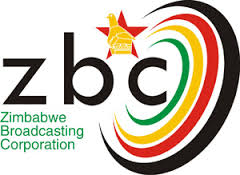Story by Oleen Ndori, Foreign Desk Editor
THE United Nations Emergency Fund (UNICEF) has launched a funding appeal of more than US$80 million for its emergency response to assist children and women affected by the El-Nino-induced drought in Zimbabwe.
On the third of April, President Emmerson Mnangagwa declared the just-ended summer cropping season a state of disaster after the El-Nino-induced drought, with the government requiring more than US$2 billion to guarantee food security for the citizenry.
President Mnangagwa went on to appeal for support from development partners and the international community.
It is with this in mind that the United Nations Emergency Fund (UNICEF) Zimbabwe has launched an appeal to partners in the civil society for an emergency fund that will assist vulnerable groups, particularly women and children.
“Our appeal for $84.9 million is to help us put in place and activate our network of rapid response teams, focus on the provision of supplies and equipment for our community gardens to boost and support nutrition, health services, education, protection, and also to mobilise the care groups at a community level that provide assistance to most vulnerable children, particularly where we have the drought emergency, along with other pre-existing emergencies, such as the cholera outbreak and polio.
“So, we are looking for these additional resources to act quickly to prevent excess deaths down the line. If we can mobilise the resources we need right now, we will be able to engage in a preventive way to stop children from dying unnecessarily further down the line,” said UNICEF representative in Zimbabwe, Dr Nicholas Alipui.
He also said the appeal will complement government efforts in assisting vulnerable communities.
“It is important to realise that the government has issued an appeal for a much larger sum of money, focusing essentially on search and rescue, mitigation, and resilience building. So, there is a framework that covers these three thrusts in the government appeal. The UN FLASH appeal is complementary to this. It is not additional. It is supposed to be the spearpoint response, an emergency strategy response that will help move things quickly along the way as the bigger request from the government comes in.
“What we have done is to take the overlapping emergencies and to bring them together into a severity classification and ranking of the districts in Zimbabwe. So, we have a ranking of severity 1, 2, 3, 4 and 5. We don’t have 5 at the moment. That implies famine level, and food insecurity, but we are focusing on those districts that have been classified as severity 3 or 4. This is where we have intense and severe El Nino impact,” he added.
Government has rolled out a drought relief programme that will also benefit vulnerable urban dwellers to ensure no one dies from hunger, while measures are being put in place to minimise the loss of livestock.





